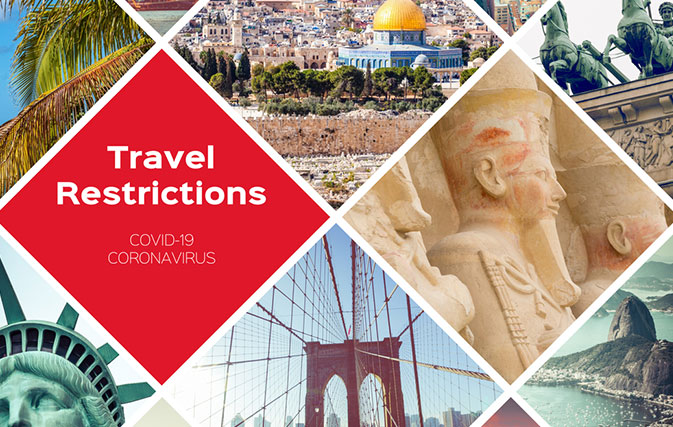MADRID — A new report by the World Tourism Organization (UNWTO) has found that nearly every destination in the world has imposed travel restrictions since January 2020 due to COVID-19.
As of April 6, 96% of global destinations have imposed travel restrictions in response to the pandemic. Approximately 90 destinations have completely or partially closed their borders to tourists while another 44 are closed to certain tourists depending on country of origin.
Four key types of restrictive measures were identified, including:
- Complete or partial closure of borders to tourists
- Destination-specific travel restrictions (passengers who have transited or been in ‘x’ are not allowed to enter ‘x’)
- The total or partial suspension of flights
- Different measures, including requirements for quarantine or self-isolation, medical certificates, invalidation or suspension of visa issuances
According to UNWTO Secretary-General Zurab Pololikashvili, COVID-19 has impacted travel and tourism like no other event before in history.
“Governments have put public health first and introduced full or partial restrictions on travel. With tourism suspended, the benefits the sector brings are under threat: millions of jobs could be lost, and progress made in the fields of equality and sustainable economic growth could be rolled back. UNWTO therefore calls on governments to continuously review travel restrictions and ease or lift them as soon as it is safe to do so,” he said.
The Global Tourism Crisis Committee, which was convened by UNWTO, has called upon governments to “go beyond words” and begin taking action to safeguard the millions of jobs under threat. During the Committee’s third meeting, UNWTO urged members to increase pressure on world leaders to rethink tax and employment policies relating to tourism, and to help make sure businesses survive to help drive wider recovery efforts.
“This crisis has shown the strength of solidarity across borders. But nice words and gestures will not protect jobs or help the many millions of people whose lives are dependent on a thriving tourism sector,” added Pololikashvili. “Governments have an opportunity to recognize tourism’s unique ability to not only provide employment but to drive equality and inclusivity. Our sector has proven its ability to bounce back and help societies recover. We ask that tourism is now given the right support to once again lead recovery efforts.”
Looking ahead, the Global Tourism Crisis Committee is working on a Recovery Plan for the sector. This will be centred around open borders and enhanced connectivity while also working to raise consumer and investor confidence.
To help countries get back to growth, UNWTO will soon be launching a new Recovery Technical Assistance Package. This will enable its Member States to build capacity and better market and promote their tourism sector in the challenging months ahead.

